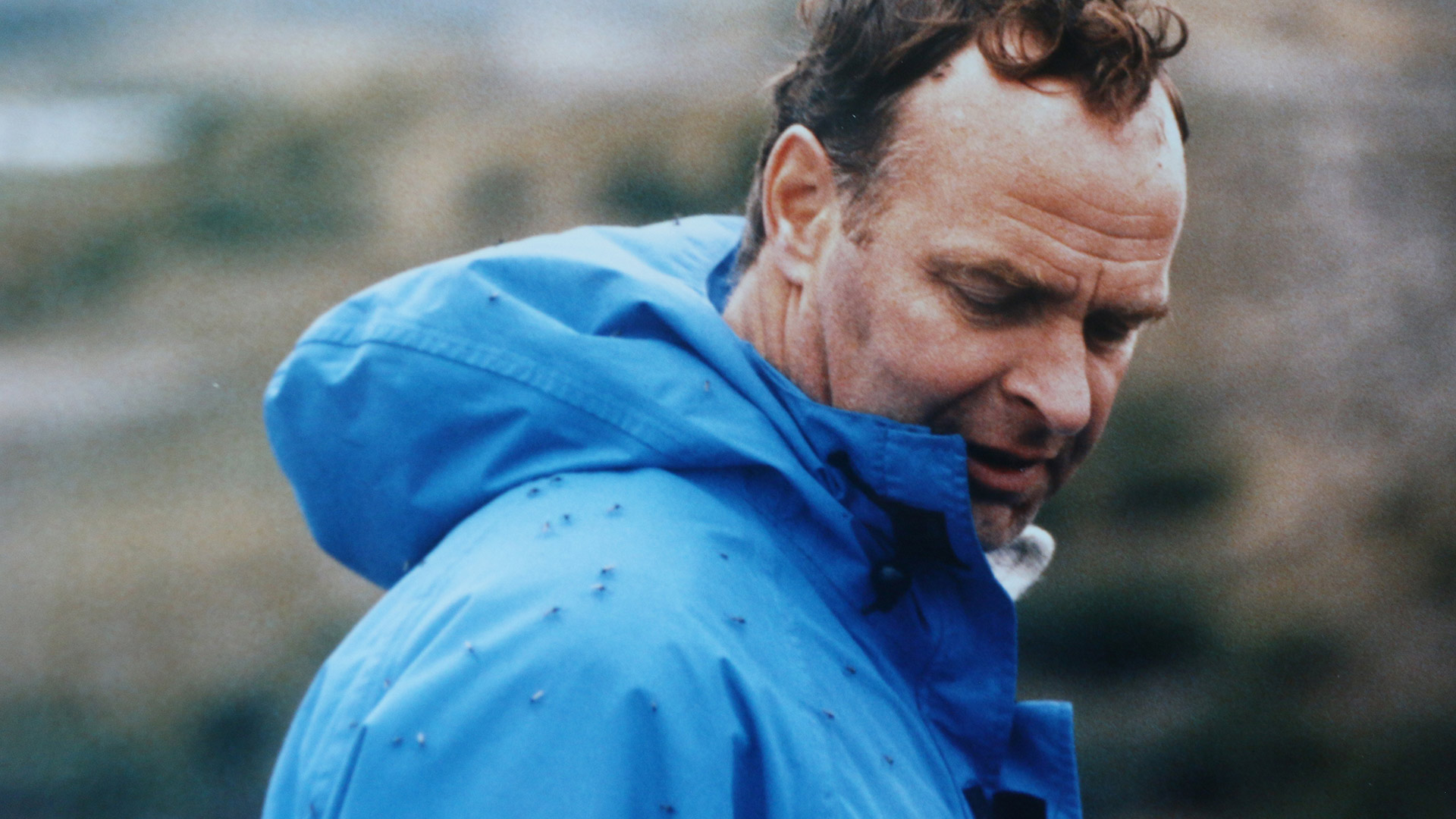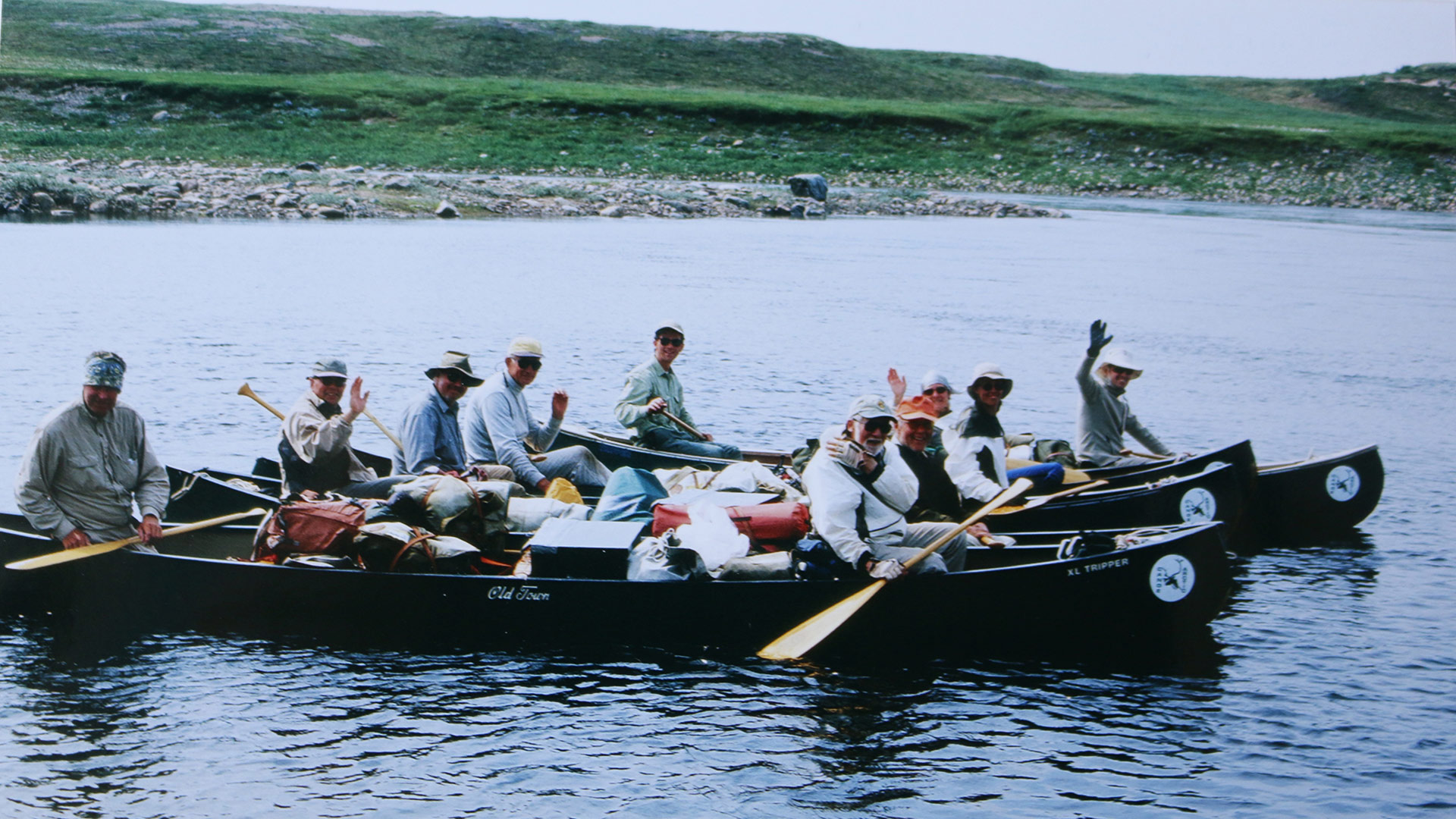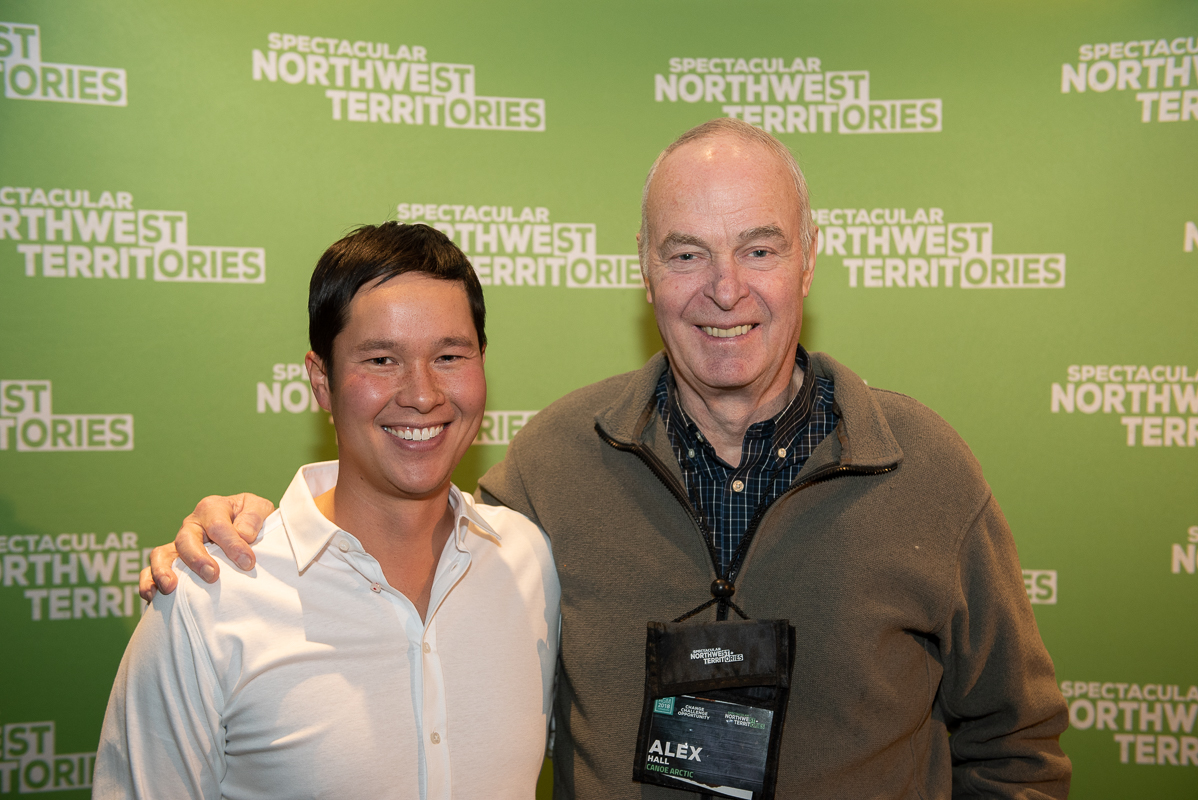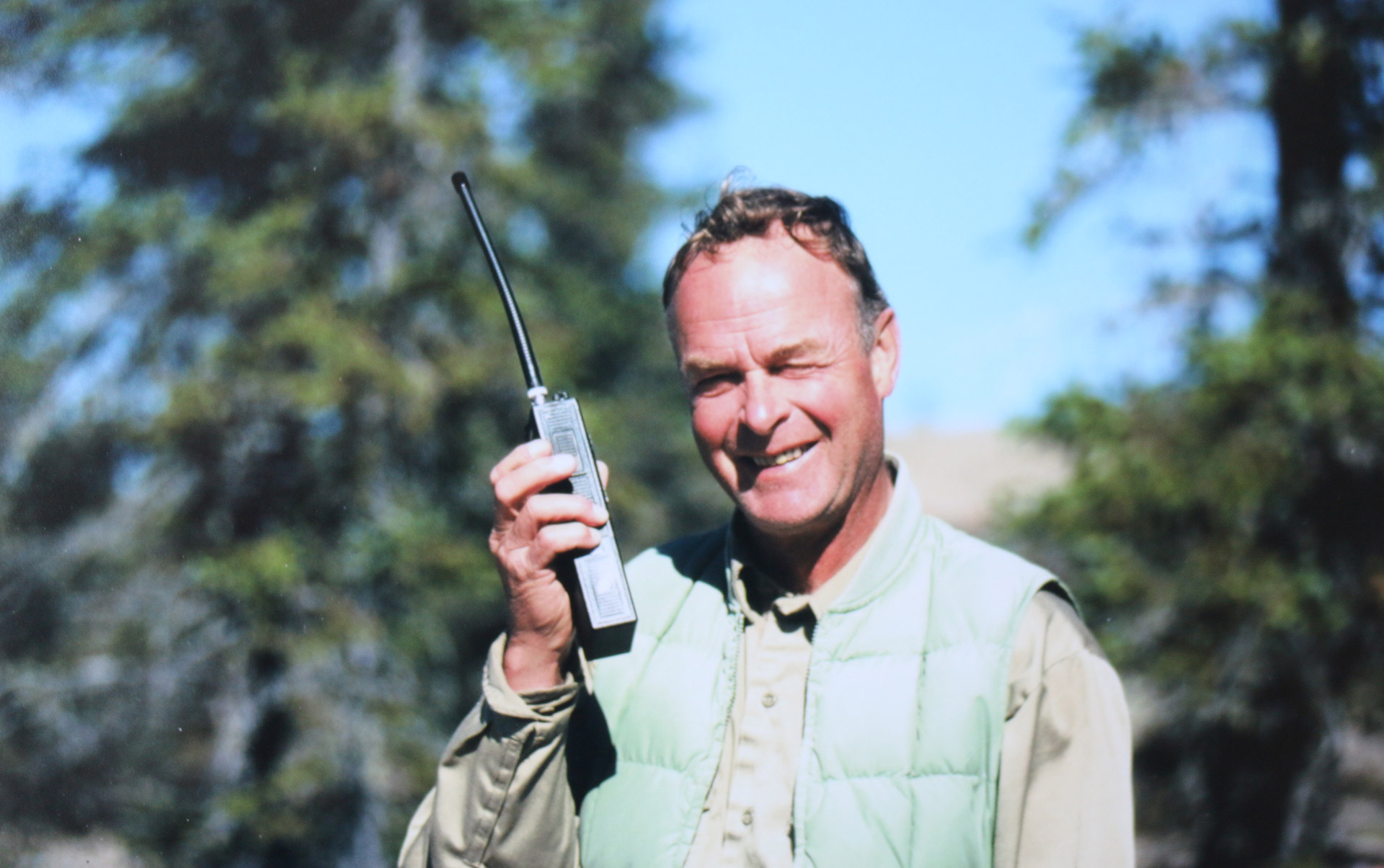Alex Hall
December 17, 1942 – March 2, 2019
'It seems that the more you see of the Barren Lands the more you have to return. You can never get enough. A hundred lifetimes wouldn’t be enough.'
-Alex Hall

'It seems that the more you see of the Barren Lands the more you have to return. You can never get enough. A hundred lifetimes wouldn’t be enough.'
-Alex Hall
The text below include excerpts from a presentation delivered by Monte Hummel, President Emeritus WWF-Canada, at the Wilderness Canoe Symposium, Toronto, Feb 22, 2019)
On March 2, 2019, after an eleven month battle with cancer, Alex Hall passed away peacefully at home in Fort Smith, NWT. Alex was the longest serving and first Arctic canoe guide in Canada. He spent forty-six years paddling under big tundra skies, and sharing the central barrens with around over two thousand clients. He had seen over a million barren-ground caribou, thousands of muskox, over a hundred grizzly bears, and over a thousand Arctic wolves (Alex’s favourite species).
Alex developed his life long love of the outdoors, hunting and fishing with his father. He graduated from the University of Toronto as a wildlife biologist with a master’s thesis written on wolves. As part of his studies under world expert Dr Douglas Pimlott, Alex took his first trip to Baffin Island, and during his return flight over northern Quebec, he described the moment that changed his life. The small plane broke through the clouds, and below he saw the tundra covered in caribou and snow geese. Thus began his lifetime love affair with the Barren Lands, so well described in his award-winning book Discovering Eden. In that book, he wrote: “The Barren Lands have become my religion, my church; they’re sacred ground. I worship them. My soul is there. That is why my ashes will go there one day, so my body and spirit will remain part of the Barren Lands forever.”
The Early Years - The Algonquin Wildlife Research Station (1966) The photos below come from the collection of Edward M. Addison who shared time with Alex at the Algonquin Wildlife Research Station in 2966. "I decided to pursue a graduate degree in biology, specializing in animal ecology. In those days ecology was a word that very few had ever heard. That’s when I met up with Doug Pimlott again. By now, Doug was a well-known environmentalist and wolf biologist at the University of Toronto. He took me on as a master’s student. My grades were good, but Doug later told me that it was the independence and maturity I had demonstrated in circling the globe on my own that had been the deciding factor. In the summer of 1966, I worked on wolves in Algonquin Park with Ed Addison and Dennis Voigt, both of whom became lifelong friends. This gave me the chance to brush up on my canoe tripping skills, which had lain dormant since Camp Ahmek days. The next summer, I began my master’s research on beaver and wolves in Algonquin Park and near Georgian Bay." - Alex Hall in Discovering Eden: A Lifetime of Paddling Arctic Rivers

Throughout his career, Alex made enduring contributions to conserve and protect the Barren Lands in the Canadian Arctic. For example, in the late 80’s, it was Alex and the Inuit of Baker Lake who led the charge to keep uranium mining out of the Thelon Game Sanctuary. Today, we still have a world-renowned, intact Thelon River and wilderness.
In the 90’s, it was Alex Hall and David Pelly who dreamed up a Central Barrens conservation vision, to link the huge Queen Maude Gulf Migratory Bird Sanctuary south to the Thelon Wildlife Sanctuary, and if possible, southwest to the new national park east of Great Slave Lake, Thaidene Nene. WWF inherited this continentally-significant vision, some of which is now in place. For example, in 2008 we saw the interim protection of over 10 million ha around Great Slave Lake. These are the Akaitcho traditional lands that extend eastward right out to the Thelon, and southwest as far as Wood Buffalo. That land-withdrawal was the largest in Canadian history, which Alex Hall helped inspire.
In the mid-90’s, both Al and Monte Hummel testified at the environmental assessment hearings for the first diamond mine in Canada. It was emotional testimony that Alex himself struggled to finish, that it brought tears to the eyes of many in the hearing room, including panel staff themselves. As a result of those hearings and a subsequent legal action, WWF helped obtain the NWT Protected Areas Strategy, which has since set aside over 20 million ha of Dene territory, primarily in the Mackenzie River Valley and watershed.

Click here for a Free Download of Alex's awarding winning book Discovering Eden: A Lifetime of Paddling Arctic Rivers
 1966. Ray Stefanski, Alex Hall on ridge above Amyoa Lake, WRS.
1966. Ray Stefanski, Alex Hall on ridge above Amyoa Lake, WRS. 1966. Alex Hall_ Ted Ross. Wolf Research, Fools Lake.
1966. Alex Hall_ Ted Ross. Wolf Research, Fools Lake. 1966. Alex Hall, Ray Stefanski, Tim Allen @ Chit Lake cabin.
1966. Alex Hall, Ray Stefanski, Tim Allen @ Chit Lake cabin. 1966. Alex Hall with wolf pup by animal pens, WRS.
1966. Alex Hall with wolf pup by animal pens, WRS. 1966. Alex Hall with deer fawn up tote road, WRS.
1966. Alex Hall with deer fawn up tote road, WRS.

Before Alex passed away, he handed the reins of Canoe Arctic Inc. to fellow northerner Dan Wong, owner of Jackpine Paddle. From 2019 to present, Jackpine Paddle will proudly carry on the legacy of Canoe Arctic Inc. on the Thelon River and its major tributaries.
Words from Guest Mark Fiegl, who shared canoe trips with both Alex & Dan:
Alex’s legacy and wilderness canoeing in that part of the Barren Lands is in good hands with Dan. In many ways the trip felt very similar to Alex’s trip. Similar pace, and of course the same routes, campsites, canoes, schedule and flights from Fort Smith. All very well organized and smooth. It was a privilege to paddle with Dan as well, and I hope that I (and all of us) get to paddle with him for many years to come.
Mark Fiegl, Avid Canoeist
Documentary Short Film on Alex Hall & Canoe Arctic Inc:
